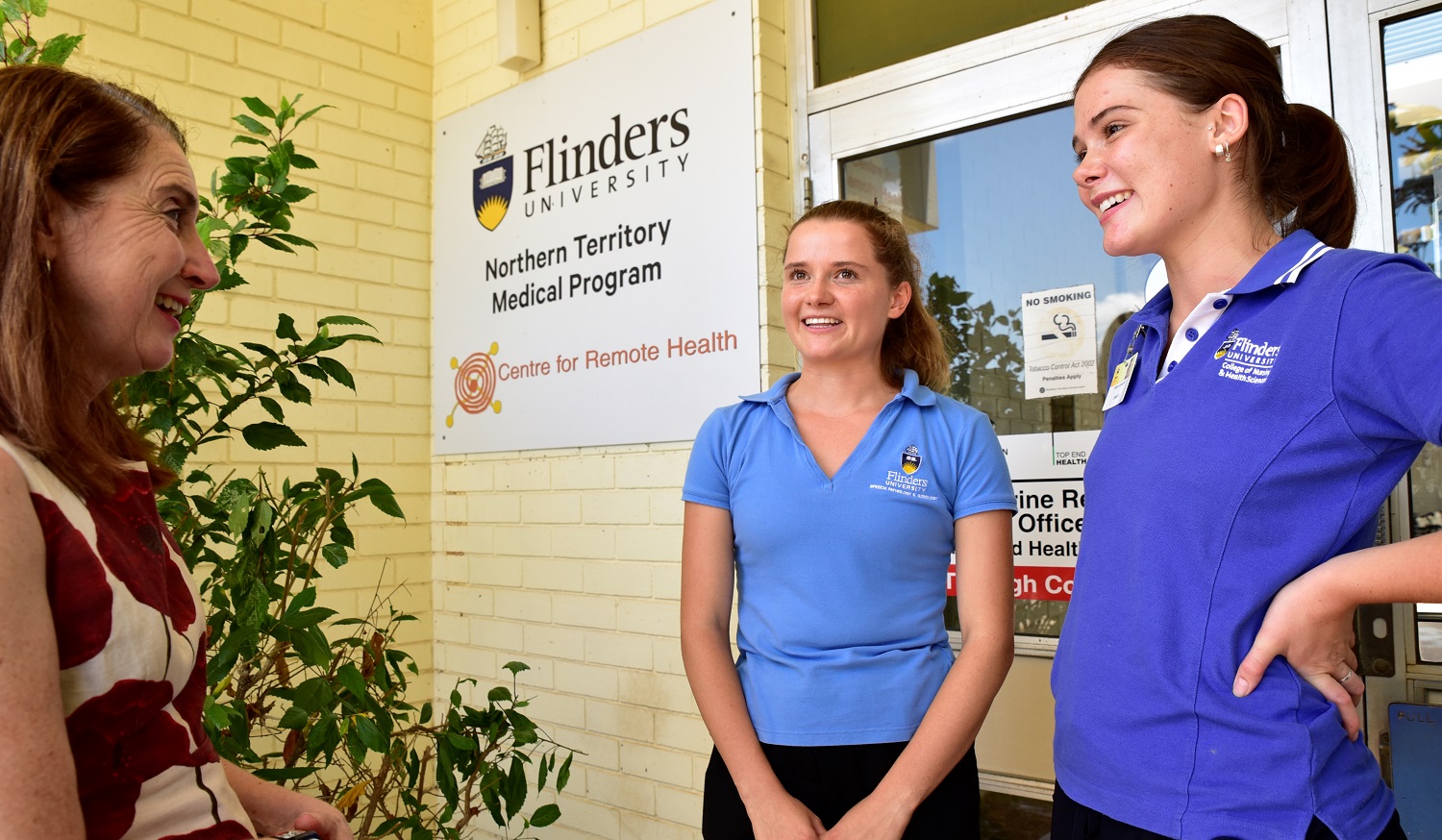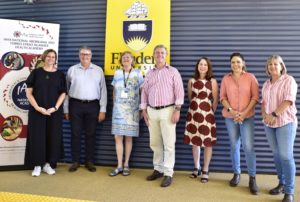
Flinders University will extend its established allied health placement program in Katherine and surrounding remote communities in the Northern Territory, thanks to a grant of almost $2 million awarded under the federal government’s Rural Health Multidisciplinary Training (RHMT) program.
Announced today by Federal Regional Health Minister Dr David Gillespie, the funding will see Flinders expand on a long-standing presence in the Northern Territory in collaboration with Indigenous Allied Health Australia (IAHA) and two local Aboriginal Medical Services, in a bid to improve the recruitment and retention of allied health professionals for the region.
Seven new initiatives across Australia are being funded as part of the RHMT program, with Flinders University now awarded two, following last week’s announcement of an expansion to Flinders Rural and Remote Health training programs in South Australia’s Riverland, Mallee and Coorong regions.
Flinders University President and Vice-Chancellor Professor Colin Stirling welcomed the government’s investment in growing the Northern Territory health work force, adding it was a testament to Flinders long-standing commitment to serving the Territory and the Katherine region.
“Flinders has developed and delivered health education and research expertise in the Northern Territory for more than 25 years, with local staff and infrastructure based in Darwin, Nhulunbuy, Katherine, Tennant Creek and Alice Springs. Our deep commitment to the Territory is acknowledged by the government supporting us to extend our meaningful contribution in the remote communities across the region.
“Our focus on Aboriginal and Torres Strait Islander Health, rural and remote health issues and the development of a ‘home-grown’ health care workforce within rural and remote communities is a clear strength.
“Alongside our successful local medical program, paramedicine degree and interprofessional work integrated learning placements, this funding will provide an excellent opportunity to expand allied health learning opportunities for students to experience, contribute to, and return as graduates to these extraordinary communities.”

The Federal Government’s Rural Health Multidisciplinary Training (RHMT) program offers health students the opportunity to train in rural and remote communities with the aim of recruiting and retaining medical, nursing, dental and allied health professionals in these regions.
Professor Jonathan Craig, Vice President and Executive Dean of Flinders University’s College of Medicine and Health, said the funding announced today will support Flinders local Territory staff to increase placement opportunities for allied health students including speech pathologists, social workers and occupational therapists, employ allied health staff as supervisors and support the development of an Indigenous Health Academy.
“Our aim is to provide a workforce pipeline of students who will potentially return as graduates following their positive learning experiences in the remote Katherine region,” says Professor Craig.
To ensure the program is backed by local resources and experience, Flinders co-designed the project with key partners including IAHA, Wurli-Wurlinjang and Katherine West Health Board (KWHB).
“25 per cent of Katherine residents identify as Aboriginal and up to 100% in very remote communities, so while it is important we produce more allied health workers to stem chronic shortages, what is equally as important is that we develop a culturally safe health work force that understands the community they work in and understands the unique challenges that will arise,” says Professor Craig.
Kylie Stothers, IAHA’s Director of Workforce Development and a proud Jawoyn woman from Katherine, spoke of the need for local workforce solutions.
“IAHA are pleased to be a partner on this important work. We know that a culturally safe allied health workforce plays a key role in improving the health and wellbeing outcomes of our communities, and clinical placement experiences in Katherine is an important strategy to developing the workforce locally,” says Ms Stothers.
As part of the federal government grant, Flinders University will also purchase two houses for accommodation to ensure students from universities all across Australia can live in the region and take part in the program.
“It’s vital students can immerse themselves into the community, not only to learn more about the people they work with and for but because we know it is key to encouraging students to return once they have graduated,” says Professor Craig.
“We’ve seen this already in Katherine, where up to 90 per cent of our year 3 medical students who have trained in that region have chosen to return.
“This is especially important in the unique landscape of the Northern Territory, where we continue to play a vital role in training and contributing to the growth of the allied health work force, as well as the education and provision of medical doctors through our Northern Territory Medical Program.”
“Overall, it’s a core strength of our Rural and Remote Health program across both the NT and South Australia, where our education programs continue to attract Indigenous and local students and retain health graduates in the local work force, and one to which Flinders remains highly committed to.”

